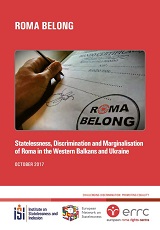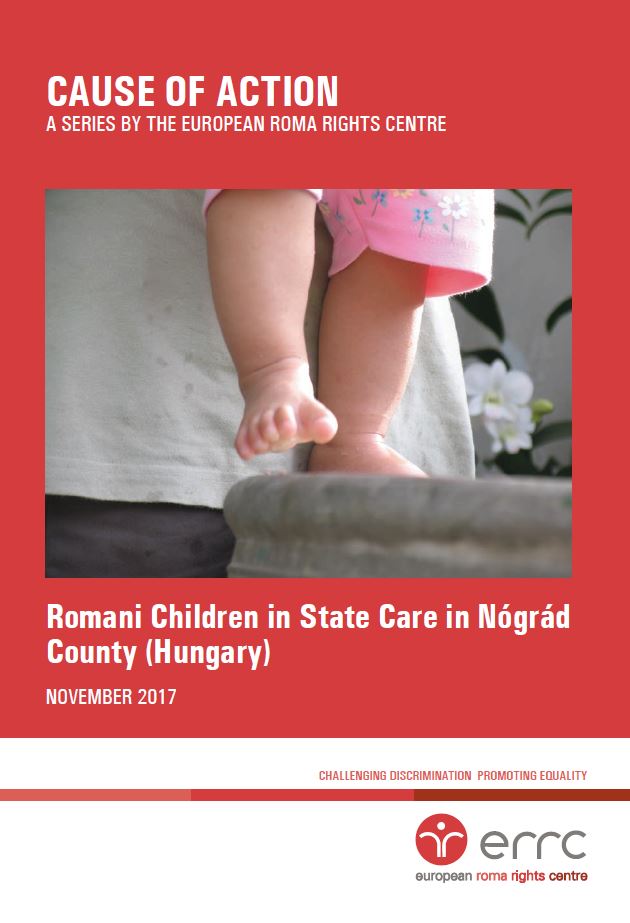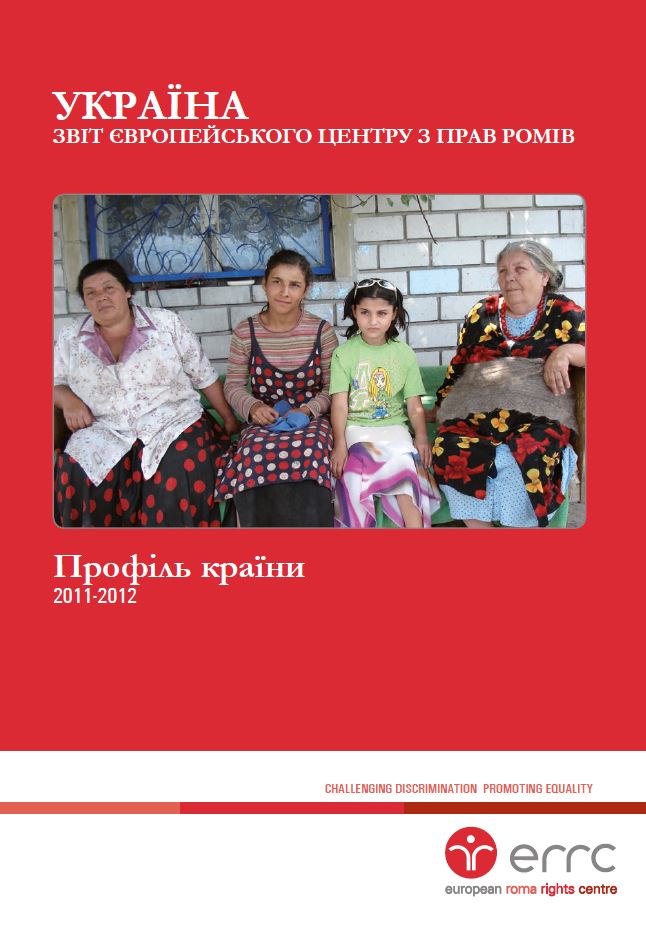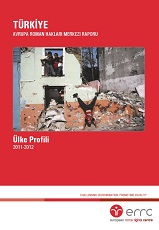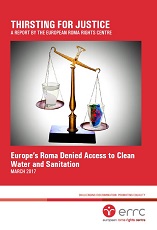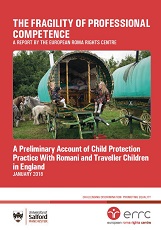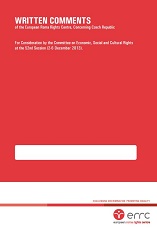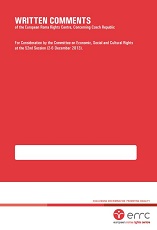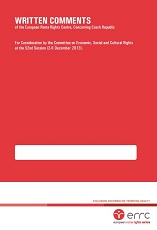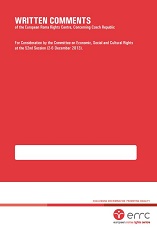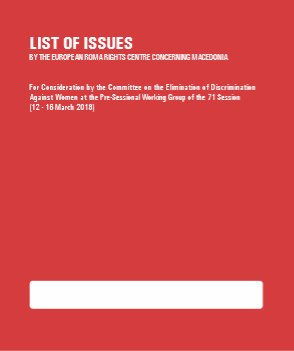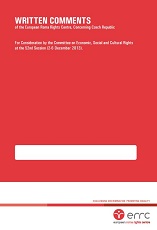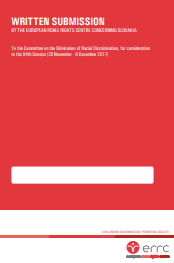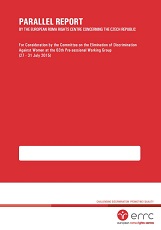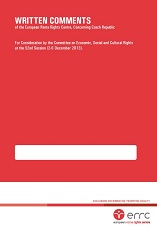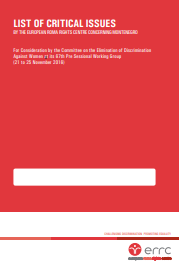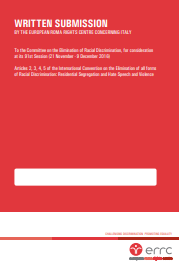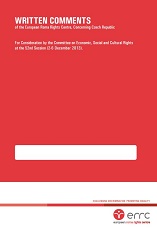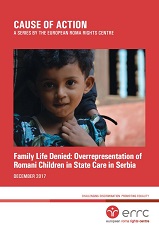
CAUSE OF ACTIONC. Family Life Denied: Overrepresentation of Romani Children in State Care in Serbia
CAUSE OF ACTION. Family Life Denied: Overrepresentation of Romani Children in State Care in Serbia
Keywords: state-run children-care; Roma-kids in state-care; Roma in Serbia;
Romani children in Serbia are being removed from their families at an alarming rate. The ERRC carried out in-depth research on the situation. We found there are disproportionate numbers ofRomani children in foster care – a third of children in care in Belgrade come from Romani families, for example, yet Roma make up less than two per cent ofthe city’s population. Although Serbia is closing down its institutions for residential care, Romani children are overrepresented there as well. And once Romani children are removed from their families, it’s rare that they return. Why is the right to family life being denied to so many Roma in Serbia? We don’t believe that authorities remove children maliciously. But we do believe that Romani families are victims of indirect discrimination and stereotyping. After centuries of discrimination against Roma, Romani children are more likely to live in inadequate housing, less likely to have parents in employment and may find it hard to access mainstream education. This plays a part in the decision to remove children from their families. As so many children are removed, and so few are able to return, this calls into question the support that these families receive to stay together.
More...
